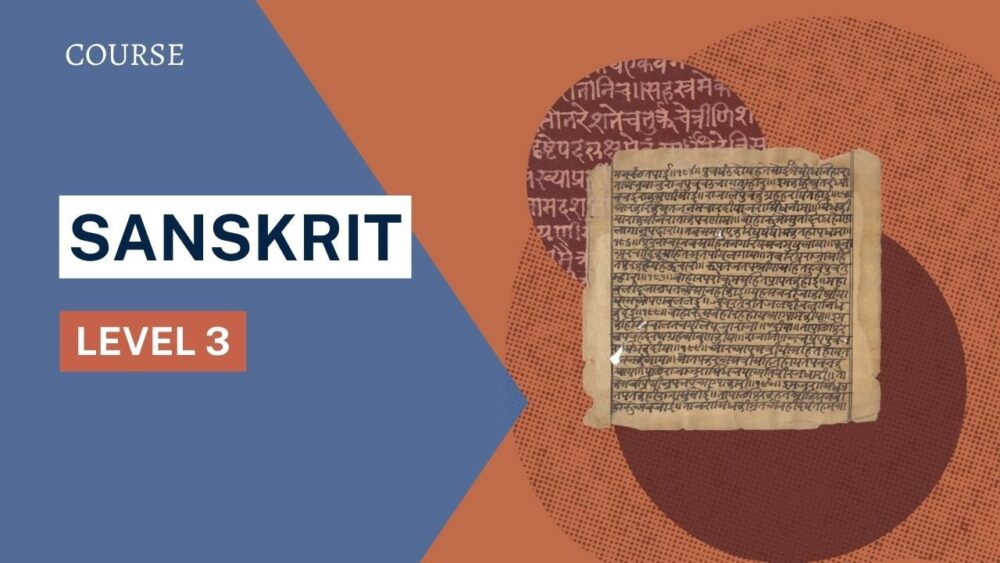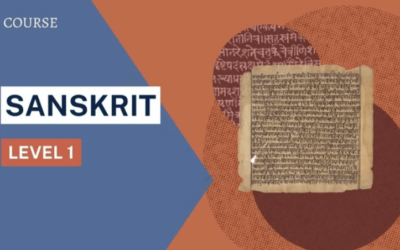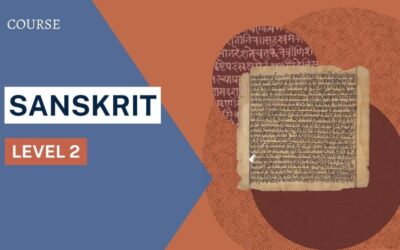🎁 Exclusive Discount Just for You!
Today only: Get 30% OFF this course. Use code MYDEAL30 at checkout. Don’t miss out!
We will learn more masculine and feminine nouns (ending in -i, -u, and -ṛ) and their declensions, as well as other verbal forms, such as the imperative, optative, and past tense, and also verbal prefixes, gerunds, and infinitives.
File Size: 3.58 GB.
Zoë Slatoff – Sanskrit Level 3 – Collection

About the course
In this course, we will build upon what we learned in the Level 1 and 2 Sanskrit courses. We will learn more masculine and feminine nouns (ending in -i, -u, and -ṛ) and their declensions, as well as other verbal forms, such as the imperative, optative, and past tense, and also verbal prefixes, gerunds, and infinitives. We will go through specific examples for each new form, continuing to read verses from texts such as the Bhagavad Gītā and Haṭha Pradīpikā. Students will study from Zoë’s book (chapters 5 and 6) “Yogāvatāraṇam: The Translation of Yoga,” which she wrote to join Eastern and Western methods and theory and practice together.
Module 1: Masculine Nouns Ending in -i and -u
In this session, we will start Chapter 5 of “Yogāvatāraṇam: The Translation of Yoga,” beginning with the parallel declensions for masculine nouns ending in -i and -u and looking at examples. p. 85 – 88.
Module 2: Feminine Nouns Ending in -i and -u
We will begin by reviewing the declensions of masculine nouns and translation exercises. We will then look at feminine nouns ending in -i and -u, with examples. p. 88 – 91.
Module 3: The Imperative
We will start with a review of the declensions and verses focused on feminine nouns ending in -i and -u. We will then look at the imperative mood, used to express a command, advice, instruction, or request. We will look at both parasmaipada and ātmanepada forms and examples. p. 91 – 95.
Module 4: The Optative
To begin, we will review the examples of the imperative mood. We will then look at the optative mood, used to express a wish, possibility, instruction, or prescription. We will look at both parasmaipada and ātmanepada forms and verses that illustrate this. p. 95 – 99.
Module 5: Chapter Review
In this session, we will start by reviewing the verses on the optative mood. We will then take some time to review the whole chapter. p. 100 – 101.
Module 6: Familial and Agent Nouns Ending in -ṛ
We will start by going over the review exercises from Chapter 5. We will then begin Chapter 6 of Yogāvatāraṇam: The Translation of Yoga.” We will learn the declensions for masculine and feminine familial and agent nouns ending in -ṛ. We will go through the declensions in detail and look at an example. p. 103 – 106.
Module 7: Past Imperfect Tense and Verbal Prefixes
After reviewing the exercises on familial and agent nouns ending in -ṛ, we will learn the past imperfect tense in both its parasmaipada and ātmanepada forms. We will also look at verbal prefixes. p. 106 – 111.
Module 8: Gerunds and Infinitives
In this session, we will review the conjugations and verses on the past imperfect and prefixes. We will then look at the indeclinable gerunds (absolutives) and infinites with examples. p. 111 – 118.
Module 9: Review
In our final session, we will go over the exercises on the gerund and infinitive as well as the review exercises for Chapter 6. We will also take some time to answer any remaining questions you may have on the whole course.
Participants in this course will learn:
- Learn to read and write the devanāgarī script.
- Be able to read key yoga terms and understand their meaning.
- Learn proper Sanskrit pronunciation.
- Become familiar with transliteration using the most widely accepted IAST system.
- Read verses and sūtras from classical yoga texts.
- Understand the structure of the most common type of verse.
- To translate simple verse
- Masculine, feminine, and neuter nouns
- The eight cases of all nouns
- Sandhi rules for joining words together.
- Masculine and feminine nouns ending in -i, -u, and -ṛ
- The imperative, optative, and past imperfect
- Verbal prefixes, gerunds, and infinitives
Course Features
- Lectures 0
- Quizzes 0
- Duration 10 weeks
- Skill level All levels
- Language English
- Students 79
- Assessments Yes


